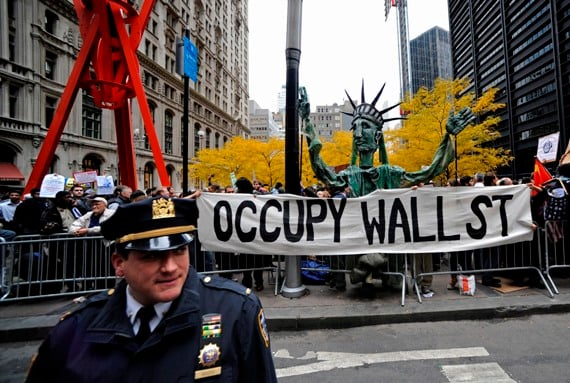Environmentally responsible investing sees uptick in interest following protest movement; same thing for socially aware funds
The Occupy Wall Street movement might be fading from the headlines, but its impact is still being felt in at least one area of the asset management industry.
"As a result of the Occupy movement, we saw more inquiries from clients interested in socially responsible investing," said Matthew Patsky, chief executive of Trillium Asset Management LLC, which manages $1 billion in socially conscious investments.
Mr. Patsky, speaking Tuesday in Washington, D.C., at the Investment Management Consultants Association's annual conference, has done extensive research on the overall Occupy movement and its various participants. On an anecdotal level, he noted that one of his high-net-worth clients requested that the custody of his portfolio be moved from Bank of America Merrill Lynch to Charles Schwab & Co. Inc. as a result of the movement.
Even though Mr. Patsky acknowledged that both firms fit into the category of large financial institutions, the client's perception was that Bank of America represented the larger villain in the financial crisis.
"Occupy Wall Street raised a lot of issues that helped us [in] making sure we were articulating how we could have a positive impact in both social and environmental outcomes with peoples' money," he said. "I also think we've been more aggressive in terms of looking at opportunities in what we call community investments where there's higher social or environmental outcomes."
While Mr. Patsky said it has never been easy to identify a unifying theme of most Occupy protestors, he has realized that the movement is expanding the potential universe of a new breed of socially conscious investors. Indeed, the initial trigger — investors keen to move money away from big banks — has led many clients to look at investing in a while new light.
"That led a lot of people to firms like ours, because they want to make sure their money is having more of an impact and that they weren't just supporting businesses in the same way it's been done in the past," Mr. Patsky said.







